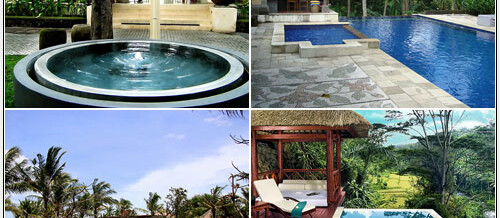Another interesting piece from HotelInteractive, this time from Megan Sterritt. I’ve shortened it to bring out the highlights.
1) How can Social Media help me? Do I need it?
Whether it’s for branding, to reach media for coverage or directly get in front of eligible consumers, social media marketing is an effective strategy for companies/brands to capture users in all phases of the shopping process. In today’s world, consumers demand honest, accurate, timely and engaging information.
Branding: You control your message. Social channels take you direct to your consumer so you can control 100% of what you say to them. But, as Evision stated in a recent report, “sell yourself (softly).” Meaning, talk about your features and benefits briefly and selectively. Your social content should not be all about you, all the time. You also control how you look to consumers. Make sure your brand personality is consistent across all channels.
Brand Awareness: You control how many people see your message and hear about your brand. By tagging and other methods for extending reach, it’s really up to you the number of times your potential consumer hears and learns about you and what you have to offer. With one billion monthly active users on Facebook and over 300 million on Twitter, a brand is not limited to the average 30K magazine circulation.
Reach Influencers: Social media influencers do just that – influence consumers to act (e.g. discussion, purchase, recommend, etc). They could be print journalists, broadcasters, bloggers or anyone that others see as a point of reference. And while traditional PR is responsible for reaching out to influencers on their home court (at the magazine, TV station, on the blog, etc.), these same influencers usually congregate together on social media during Tweetchats. A tweetchat is a discussion between a group of people about a certain topic on Twitter, normally following a specific hashtag during a set time.
Example: the #TNI (Travelers’ Night In) tweetchat at 3:30 pm every Thursday gathers many travel writers and travel influencers together to discuss a specific travel topic – this is perfect for hotels or travel companies looking for publicity. #Foodchat is another, perfect for restaurants or food brands. (also #TTOT Travel Talk On Tuesday – ed)
Build Brand Ambassadors: Social Media can help brands personalize a customer’s experience – in a unique and immediate way – like no traditional platform. The Four Seasons Lanai crafts a unique turndown amenity telling guests to tweet them during their stay. When on property, if a guest posts that they’re interested in dining or going to the spa at the resort, the resort can send them directly to the reservations page. Not only does it make the experience easier for the guest, it gets them to purchase at the hotel instead of next door. The more you engage with a person, the more likely they are to be happy with their experience and SHARE the experience with others.
Reputation Management: Social channels are a convenient way for your customers to give feedback. They also allow you to more easily monitor and respond. If a person goes out of their way to say something about you on social media, they want you to know. In his book The New Influencers, author Paul Gillin said, “Conventional marketing wisdom long held that a dissatisfied customer tells ten people. But…in the new age of social media, he or she has the tools to tell ten million.”
Don’t give a negative reviewer additional ammunition to continue talking badly about you because you don’t respond. Always respond, and do it honestly. If it’s a review on Tripadvisor or Yelp, positive and negative reviews should be addressed ASAP. Approach negative reviews with a solution, and positive with appreciation. There is nothing like saying Thank You to someone that likes you. That will make them ten times more your brand advocate.
SEO & Increased Traffic to Website: One of the three core elements of Search Engine Optimization is popularity, which is the sheer number of inbound links to a website. Using a shortened URL (that’s relevant) at the end of your tweets or posts will drive visitors to your website. In addition, producing good content naturally attracts back links and social signals (such as Tweets and Likes) that tell search engines that your content is popular with actual beings, further building up your site’s credibility for the crawlers.
2. How often do I need to be on social media?
Simple answer: every day. Every day you should be monitoring discussion on your channels. See you later snail mail. Customer service is 24/7. If someone poses a question, they expect an answer almost immediately. And, going back to reputation management, reviews need to be replied to ASAP.
When it comes to disseminating new content, it depends on the channel. One should not post on Facebook every day. The #1 reason for un-liking on Facebook is “cluttering the newsfeed.” Carefully craft your posts, and space them out, to engage your consumer without annoying them. On the other hand, Twitter is a channel you should be publishing from at least several times a day.
3. How long does it take to show results?
WOW images can create overwhelming responses immediately, but to create true brand advocates a good six months should be expected.
4. What is included in a typical social media campaign?
There is no cookie cutter campaign model for companies or brands looking to embark on social media. The components of a social media strategy should be reflective of the type of company and its business objective. Whether its brand awareness, website traffic, sales or strictly reputation management, the social media channels used will be different.
Social Media can yield many valuable rewards, including increased sales, but always remember the true nature of social media is engagement and creating brand advocates.
22
DEC




















